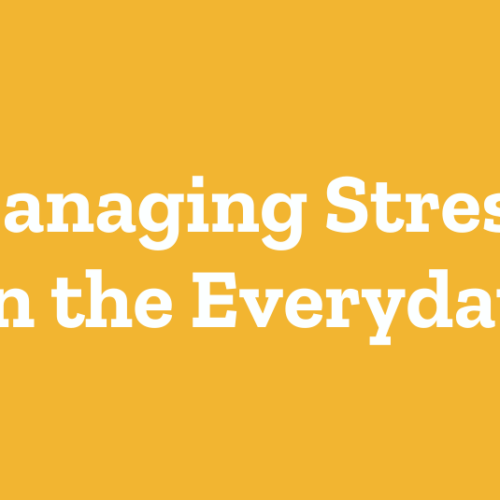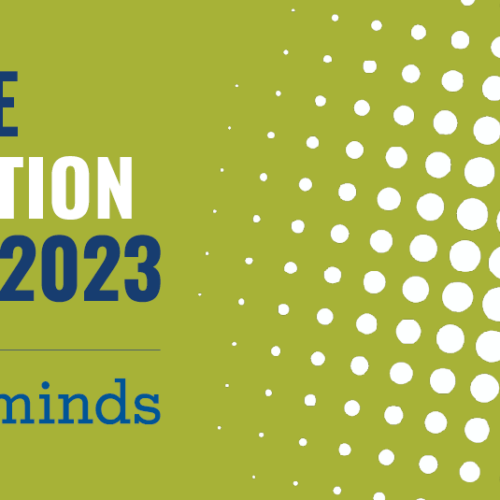There are times when the unknown can be exciting: a new job, a surprise birthday party, the first day of classes. However, there are also times when the unknown can be unsettling, leading to increased stress levels and unwelcome emotions. Throughout the past year and a half, uncertainty has become even more prevalent because of the effects of the pandemic. During these times, something my therapist told me a few years ago stands out: “Focus on the things I can control, not on the things I can’t.” Not only did this help to ground me during stressful times, it allowed me to slowly get more comfortable with the unknown and unpredictability of life.
In times of uncertainty, one way to help combat the negative thoughts and worries is to know if what you’re feeling is stress or anxiety. The two terms may seem interchangeable, but can differ in what triggers them, how your body reacts, and the best way to cope. Active Minds’ Stress Versus Anxiety resources are one way to help better understand the distinction. For example, stress is a response to a threat, situation, person, or interaction, while anxiety is a reaction to that stress. Anxiety is more long-term, and is chronic. However, one similarity between the two is that they are both treatable, if we take the steps to get help when needed. Through understanding the difference between stress and anxiety, we can find appropriate ways to deal with our emotions in a healthy way.
During the COVID-19 pandemic, I was living with my grandparents while doing school remotely. I was under a lot of stress because I was in four classes (as compared to my usual three) and my workload did not slow down. Additionally, my grandparents are older, and their safety and well-being was of utmost priority to me. The pandemic was stressful for everyone, and I definitely related to the overwhelming feelings of balancing multiple things at once. While stress is different from anxiety, I also identify as a person with an anxiety disorder, so I’m familiar with those feelings as well, and how they can look similar and different from stress. I’ve experienced panic attacks and anxiety attacks my entire life, and it’s something that’s an ongoing battle. For me, my anxiety comes in waves, and I thankfully have a good understanding of my triggers and how to keep my symptoms at bay. Stress, however, can be heightened by external situations that are harder for me to control.
One of the first “warning signs” that may go off for us that we’re experiencing a situation that is highly stressful is the onset of physical symptoms. For me, it’s tension in my upper back and neck. To help relieve some of this uncomfortableness, I like to do progressive muscle relaxation – which is clenching followed by relaxing muscle groups in your body. My physical symptoms of stress often include having a suppressed appetite and a very tense body. Feeling stressed is very uncomfortable for my body because I can feel it manifest and get worse. Mentally, I often experience racing thoughts and have a hard time concentrating when I’m stressed. It feels as if my brain is foggy and clouded with unnecessary worries and thoughts.
When I’m feeling stressed, I have go-to ways of coping that I utilize from my personal toolkit – expressive artwork has to be one of my favorites. Through expressive artwork, I let my emotions take the forefront and draw whatever I want, with no judgment. I also like to practice physical relaxation techniques. One tactic that helps calm me down and focus on something in my control is breathing exercises. Square breathing – in for four seconds, hold for four seconds, exhale for four seconds, pause for four seconds – is a tool that I constantly use to calm my nerves down.
When you start to feel the physical or mental signs of stress, whether that be holding tension, elevated heart rate, or something else, remember to ask yourself: What are the things in my control right now? What are the things that I have no power over? Take the time to fully address those questions, and by doing that, you can try to seek comfort in your answers. Remember to breathe. Take it one day at a time – one hour at a time if you need to. You are not alone – these feelings are normal, and you will get through them!







